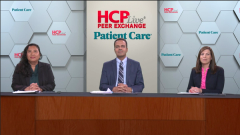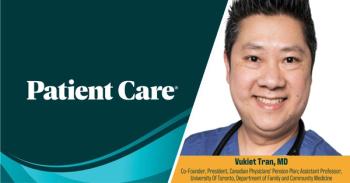
Final Thoughts on Treatment of Asthma
Raffi Tachdjian, MD, MPH, FAAAAI, FACAAI; Dareen D. Siri, MD, FAAAAI, FACAAI; Nicole Chase, MD, FAAP, FACAAI, FAAAAI; and Andrew White, MD, give final thoughts on asthma management, considering the current treatment landscape.
Episodes in this series

Raffi Tachdjian, MD, MPH, FAAAAI, FACAAI: We could see we’re no longer driving cars—we’re flying airplanes when it comes to treating severe asthma. More intricate, and certainly requires more training and more experience, as we said earlier.
I wanted to thank each and every one of you for this rich and informative exchange and discussion. And I wanted to give you each a few more minutes to summarize your thoughts. I’ll start with you, Dr Chase. Do you have any last thoughts or last words?
Nicole Chase, MD, FAAP, FACAAI, FAAAAI: I think overall I’m really grateful to be practicing medicine at this time, the Halcyon era of therapies for asthma. I think that there’s never been a better time for us to really treat asthma. Although we’re not getting to a cure for these patients with asthma as of now. All these treatments, even if some of them may later on be shown to be disease-modifying, really are still chronic treatments. But I think that we’re getting to the point where the adverse effect profile, the tolerability of these medications, is just so good that for many patients, this has been a game changer for them. I’m very excited to be a part of medicine in this day and age. And I hope that patients can tell that we really are giving it our best. This is the reason it’s important to see a specialist for asthma because we’ve spent lots and lots of time learning all of this science. And now finally the pharmacologists are catching up to us in some sense. It’s a fun time to be in allergy and asthma management.
Raffi Tachdjian, MD, MPH, FAAAAI, FACAAI: Well said. Dr Siri, do you have any parting words?
Dareen D. Siri, MD, FAAAAI, FACAAI: I think as we focus on biological treatments, they really have the opportunity to revolutionize how we approach and treat moderate to severe asthma. Certainly, we can perhaps move the needle for the first time in decades. In terms of asthma management, we have to talk about the things that we reviewed, including phenotyping the patient and endotyping the patient. Thinking about the severity of asthma, thinking about risks of exacerbation, thinking about exposure to medications that may be harmful and specific to the biologics. We have to think about if these biologics are appropriate for that patient in terms of costs, economics, patient preference, and what their goals are. Are they trying to reduce the corticosteroid burden? Are they trying to improve lung function? Are they trying to reduce exacerbation? We have to communicate these goals very enticingly to the patient, but also clearly. Overall, I think that it’s an exciting time to be an allergist-immunologist dealing with asthma. Hopefully, moderate to severe asthma will improve over time.
Raffi Tachdjian, MD, MPH, FAAAAI, FACAAI: Very well said, as well. Dr White, any last words?
Andrew White, MD: I had 2 thoughts. The first is something that occurs to me probably once a month when I’m treating a patient. These biologics have really just revolutionized what we’re able to offer our patients. I sometimes think about what I used to do to treat these patients before we had this. And it’s crazy. They’re so essential now. But the other side of that is this other really interesting observation where I’ll see a patient, I’m like, “I have the exact biologic for you. I know that this is going to be amazing for you.” And then they come back in 2 or 3 months, and it was a dud. And the great thing is we have some options, and they may end up taking something that I didn’t necessarily predict that they would do great on, but we get them to a point where their quality of life is dramatically better. It’s sort of humbling to not totally understand this and to have these biomarkers that are still somewhat imprecise. But it’s super exciting. I’m so grateful that we have all of these amazing new options for our patients.
Raffi Tachdjian, MD, MPH, FAAAAI, FACAAI: Thank you for those words, Dr White, and I’ll throw my vote in there too. It sounds like we have high job satisfaction because we’re getting a lot of great responses from our patients, which makes it worthwhile for us to push the needle even further. And in a new era, such as this advent of biologics, it’s really exciting and I actually think it defines our field of allergy immunology. Again, I want to thank you all for this fantastic discussion. And if you enjoyed the content, please subscribe to our e-newsletters to receive upcoming episodes and some great content in your inbox. Thank you.
Transcript edited for clarity
Newsletter
Enhance your clinical practice with the Patient Care newsletter, offering the latest evidence-based guidelines, diagnostic insights, and treatment strategies for primary care physicians.


































































































































